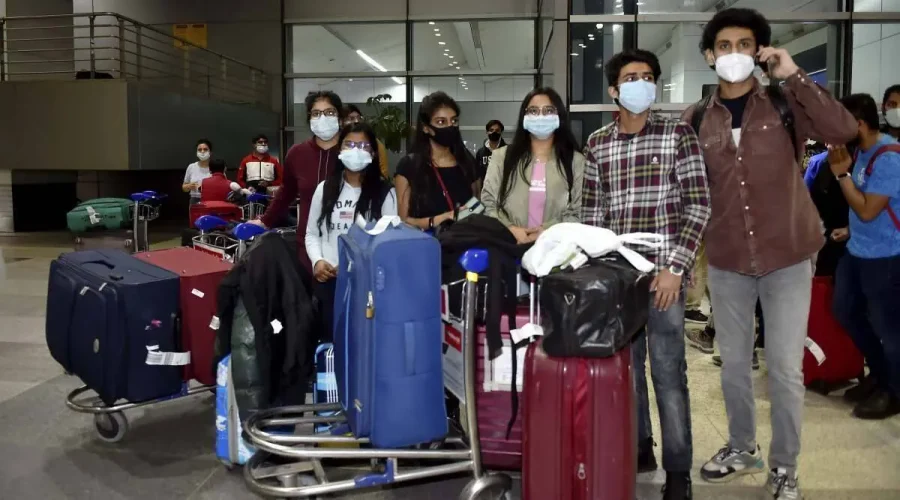More than 150 Indian students have been told to leave the country by the Canadian Border Security Agency (CBSA), which says they arrived in the country on forged college admission letters.
The students say they were unaware of the forgeries and insist they were duped by their immigration consultation agency in India that provided them the document.
Many who received the eviction letters are now embarrassed to come forward – living in a Western country is seen as a matter of prestige by many Indian families, especially in the state of Punjab where Dimple K is from.
“My mind is dark. I cannot move forward, nor go back,” said Dimple. She has been living in Canada on a student visa since 2017.
In a similar case four years ago, 129 Indian students in the US were arrested for enrolling in a fake university.
Dimple, who is from a middle-class family in Jalandhar district, has a postgraduate science degree and tried unsuccessfully to get a job in India.
The hope of a better life with her husband prompted her to apply for a student visa in Canada.
She heard about an immigration agency – which police say has been shut for the past seven months – and used it to get a Canadian visa.
“The agency told me that one of the colleges had accepted my documents, and gave me the admission letter which they said was from the college,” she said.
Dimple paid the agency 1.2m rupees ($14,525; £11,970). The amount was to cover her college fee. The agency also gave her a certificate to prove that she had funds to take care of living expenses in Canada.
But Dimple said that within two days of her ar-rival in Canada she was informed by the agency that there had been a strike at her college. They advised her to apply to another college, which she did.
In 2019 Dimple completed her diploma in computer networking and received her work permit. But in May last year, a year after she had applied for permanent residency, she was informed by Canadian authorities that her application contained a forged document.
In January, she was served an exclusion order and told to leave Canada and not return for at least five years.
She has challenged the order in a federal court in Canada and her attorney Jaswant Singh Mangat is representing over three dozen students who are in a similar situation.
In most of these cases, he says, fake admission letters were provided for exorbitant fees and used to obtain visas.
The immigration department discovered the for-geries when the students later applied for permanent residency.
The CBSA told the BBC that it doesn’t comment on individual cases. But it added that last year they uncovered a scheme whereby “unsubsidised private college programmes were leading foreign students to a post-graduation work permit (for $25,000) with the sole purpose of acquiring permanent residency”.
“This investigation led, on 7 June 2022, to the decision by the federal and provincial governments to tighten the criteria for granting post-graduation work permits. The investigation targeted 11 colleges that were implicated in the fraud,” it said.
The scam’s collapse has shattered many dreams and left many of those affected wondering what they can do. “We cannot take any legal action because we don’t have any proof against the the [Indian] agency which prepared our documents,” said Chamandeep Singh, a student also from Punjab.
Inderjit Singh meanwhile insisted he would not return to India because he said the forged documents were not his fault.
Experts called on Indian authorities to crack down on immigration agencies which deceive students. They also urged applicants to be aware of such scams and look for registered immigration agents.—Agencies










